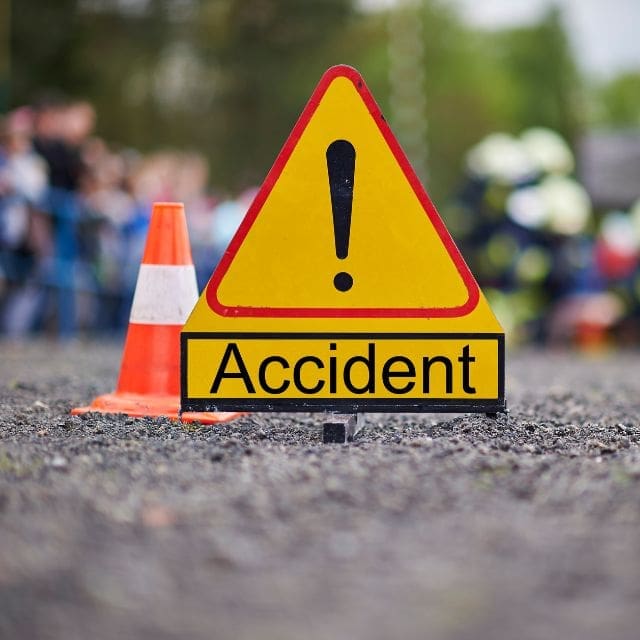Did you know Florida ranks among the top three states for hit-and-run accidents, with over 100,000 incidents reported annually? The consequences of such accidents can be devastating, especially when the at-fault driver flees the scene, leaving victims to grapple with injuries, vehicle damage, and the uncertainty of how to move forward. If you’re involved in hit-and-run truck accidents in the Sunshine State, you must act quickly and decisively to safeguard your rights and ensure your safety. The aftermath of such an incident can be overwhelming, but taking the right steps immediately can make a significant difference in your recovery.
From gathering pivotal evidence at the scene to navigating the often complex and frustrating process of dealing with insurance companies, your actions in those critical moments can greatly influence your ability to recover damages and hold the responsible party accountable. It’s not just about reacting to the shock of the accident; it’s about ensuring that every move is strategic and informed. Let’s explore the critical actions you should consider to handle this challenging situation effectively, protect your legal rights, and boost your chances of a favorable outcome. With the right knowledge and preparation, you can better navigate the complexities of a hit-and-run truck accident and move toward a resolution that ensures your well-being and justice.
Ensure Safety First

In the immediate aftermath of a hit-and-run truck accident, your top priority should be guaranteeing your safety and the safety of others involved. If you can move, carefully exit your vehicle safely away from traffic. Turn on your hazard lights to alert other drivers of the accident scene.
Check yourself and any passengers for injuries. Even if you feel fine, adrenaline can mask pain, so assessing for potential harm is essential. If anyone is seriously injured, call 911 immediately for medical assistance. Don’t attempt to move severely injured individuals unless they’re in immediate danger.
Once you’ve secured everyone’s safety, take a moment to calm yourself. Deep breaths can help you regain focus and clarity. If possible, recall any details about the truck that hit you, such as its color, make, model, or partial license plate number. These details can be key for law enforcement to track down the hit-and-run driver.
Call Law Enforcement Immediately
Always call the police immediately after ensuring everyone’s safety in a hit-and-run truck accident. Dialing 911 will bring law enforcement and emergency medical services to the scene.
It’s imperative to report the incident as quickly as possible, as this increases the chances of apprehending the fleeing driver.
When speaking with the dispatcher, provide clear and concise information about your location, any injuries, and a description of the truck that hit you. Share this information if you can recall details about the truck, such as its color, make, model, or license plate number. Even partial details can be helpful in the investigation.
Stay at the scene until the police arrive. When they do, provide a detailed account of what happened. Be honest and stick to the facts. The officer will create an official accident report, indispensable for insurance claims and potential legal action. Don’t forget to ask for a copy of this report or information on how to obtain it later.
Gather Evidence at the Scene
While waiting for law enforcement to arrive, you’ll want to gather as much evidence as possible from the accident scene. Start by taking photos of your vehicle’s damage, the surrounding area, and any visible skid marks or debris.
If you’ve spotted any witnesses, approach them and politely ask for their contact information and a brief statement about what they saw.
Look for nearby security or traffic cameras that might have captured the incident. Note their locations so you can inform the police.
If you’ve managed to catch a glimpse of the fleeing truck, write down any details you remember, such as the color, make, model, or even partial license plate numbers.
Document your injuries by taking photos and seeking immediate medical attention, even if you feel fine. Some injuries may not be immediately apparent. Keep a record of all medical treatments and expenses related to the accident.
Collect any personal items that may have been damaged in the crash, as these can be included in your insurance claim.
Seek Medical Attention

Getting prompt medical attention is indispensable after a hit-and-run truck accident, even if you don’t feel seriously injured. Some injuries, like whiplash or internal bleeding, may not be immediately apparent but can worsen if left untreated.
Don’t hesitate to call an ambulance or have someone take you to the nearest emergency room.
When seeking medical care, be sure to:
- Describe the accident in detail to your healthcare provider
- Mention any symptoms you’re experiencing, no matter how minor
- Follow all treatment recommendations and attend follow-up appointments
Remember, your health should be your top priority. Proper medical documentation is also pivotal for future insurance claims or legal proceedings.
If you’re worried about costs, remember that Florida’s no-fault insurance system requires your Personal Injury Protection (PIP) coverage to pay 80% of your medical expenses up to $10,000.
Don’t let the hit-and-run driver’s actions deter you from getting the necessary care. Prompt medical attention can prevent complications, speed up your recovery, and provide fundamental evidence if you decide to pursue legal action against the responsible party later.
Report to Your Insurance Company
After seeking medical attention, your next imperative step is to report the hit-and-run truck accident to your insurance company. Don’t delay this process; many insurance policies have strict deadlines for reporting accidents. Contact your insurer immediately, even if you weren’t at fault.
When you call, provide a detailed account of the incident. Include the accident’s date, time, location, and description of the truck that fled the scene. If you managed to note any identifying information about the vehicle, such as a partial license plate number or company logo, share this with your insurance representative.
Be prepared to answer questions about your injuries and vehicle damage. If you’ve taken photos at the accident scene or have a copy of the police report, inform your insurer. They may request these documents to support your claim.
Identify Potential Witnesses

Even though the truck driver fled the scene, you should try to identify potential witnesses who may have seen the accident unfold. These individuals can provide essential information to support your case and help law enforcement track down the hit-and-run driver.
Look around the accident site for people who might have observed the incident, such as other drivers, pedestrians, or nearby business owners.
When approaching potential witnesses, be polite and respectful. Explain that you’ve been involved in a hit-and-run accident and ask if they saw anything that could help. If they’re willing to provide information, collect their contact details and ask if they’d be comfortable stating the police or your attorney.
Approach nearby drivers who’ve stopped or pulled over after the accident.
Check with local businesses for possible surveillance footage or eyewitness accounts.
Ask passersby if they noticed anything unusual or saw the truck leaving the scene.
Consult a Personal Injury Attorney
Consulting a skilled personal injury attorney is crucial when dealing with the complexities of a hit-and-run truck accident in Florida. A lawyer experienced in these cases can navigate you through the legal process and help safeguard your rights.
They’ll investigate the accident, gather evidence, and work to identify the responsible party. Your attorney will handle communications with insurance companies, ensuring you don’t inadvertently say anything that could harm your case.
They’ll also assess the full extent of your damages, including medical expenses, lost wages, and pain and suffering, to determine fair compensation.
If the hit-and-run driver is never found, your lawyer can explore other avenues for recovery, such as uninsured motorist coverage or pursuing a claim against other potentially liable parties. They’ll navigate Florida’s no-fault insurance laws and help you understand your options for compensation outside personal injury protection (PIP) benefits.
Time is critical in hit-and-run cases, so don’t delay in seeking legal representation. Most personal injury attorneys offer free consultations, allowing you to discuss your case without financial risk. Working with a skilled lawyer will increase your chances of obtaining the compensation you deserve.
Understand Florida’s Hit-and-Run Laws
Florida’s hit-and-run laws are stringent and carry severe pe nalties for drivers who flee the scene of an accident. Understanding these laws is pivotal, as they can impact your case if you’re involved in a hit-and-run truck accident. In Florida, leaving the scene of an accident is a criminal offense, regardless of who was at fault.
nalties for drivers who flee the scene of an accident. Understanding these laws is pivotal, as they can impact your case if you’re involved in a hit-and-run truck accident. In Florida, leaving the scene of an accident is a criminal offense, regardless of who was at fault.
Under Florida Statute 316.061, drivers involved in an accident must:
- Stop immediately at the scene or as close as possible
- Provide their name, address, and vehicle registration number to the other party
- Render reasonable assistance to any injured person, including calling for medical help if necessary
Penalties for hit-and-run vary depending on the severity of the accident. For accidents resulting in property damage only, it’s a second-degree misdemeanor. If there are injuries, it becomes a felony offense with potential prison time and hefty fines. In cases of fatalities, hit-and-run drivers face first-degree felony charges with a mandatory minimum sentence of four years in prison.
Understanding these laws can help you navigate the legal process more effectively if you’re a victim of a hit-and-run truck accident in Florida. Reporting the incident immediately and cooperating fully with law enforcement is indispensable to increase the chances of identifying the responsible party.
Explore Uninsured Motorist Coverage
In the aftermath of a hit-and-run truck accident, your uninsured motorist coverage can be a crucial lifeline for compensation. This coverage protects you when the at-fault driver can’t be identified or lacks insurance. While it’s not mandatory in Florida, having this coverage is highly recommended.
Check your insurance policy to confirm if you have uninsured motorist coverage. If you do, it can help cover your medical expenses, lost wages, and pain and suffering from the accident. Even if the hit-and-run driver is never found, you can still file a claim with your insurance company.
Report the accident immediately to your insurance provider to maximize your chances of a successful claim. Provide them with all available evidence, including police reports, witness statements, and any information about the truck that hit you. Be prepared to cooperate fully with your insurer’s investigation.
Document Ongoing Medical Treatment
While pursuing insurance claims is vital, you shouldn’t overlook the need to document your ongoing medical treatment after a hit-and-run truck accident. Proper documentation can tremendously strengthen your case and guarantee you receive fair compensation for your injuries.
Keep a detailed record of all medical visits, treatments, and expenses related to your accident. This includes:
- Doctors’ appointments
- Prescription medications
- Physical therapy sessions
Be sure to request copies of all medical records, including diagnostic tests, treatment plans, and progress notes. These documents provide indispensable evidence of the extent of your injuries and their impact on your daily life.
Don’t forget to track any out-of-pocket expenses, such as travel costs to medical appointments or home modifications necessitated by your injuries. Keep all receipts and invoices related to your treatment and recovery.
It’s also wise to maintain a personal journal documenting your pain levels, limitations in daily activities, and emotional state. This can help illustrate the full extent of your suffering and recovery process.
Hit-and-Run Truck Accidents: Chart Your Course to Recovery with Expert Legal Guidance
Facing a hit-and-run truck accident in Florida can feel like navigating through a storm. Your immediate actions can significantly impact your ability to recover damages and move forward. Each step is vital in securing your rights, from ensuring your safety to gathering crucial evidence, seeking medical attention, and reporting the incident to your insurance company.
In these challenging times, having a knowledgeable and compassionate legal team by your side can make all the difference. At Calandro Law, we understand the complexities of hit-and-run cases and are committed to fighting for the justice and compensation you deserve. With our experience, resources, and dedication to our clients, we’ll guide you through every step of the legal process, ensuring your rights are protected and your voice is heard.
Don’t let a negligent driver’s actions dictate your future. Contact Calandro Law today for a free consultation, and let us help you chart your course toward justice and recovery.
You’ll weather this tempest with a skilled legal navigator and sail towards calmer seas of justice and recovery.



